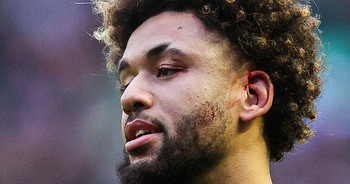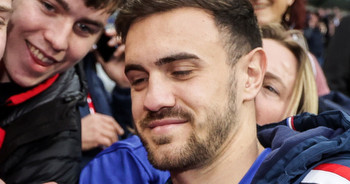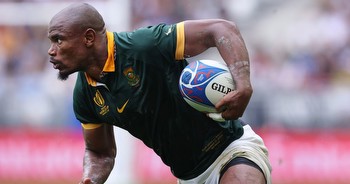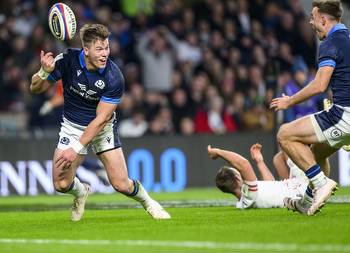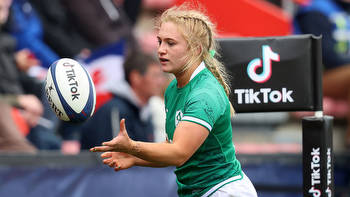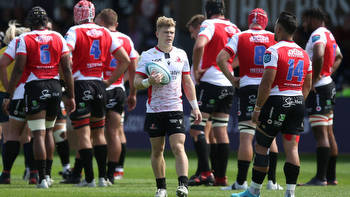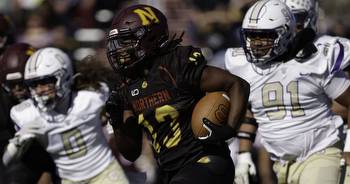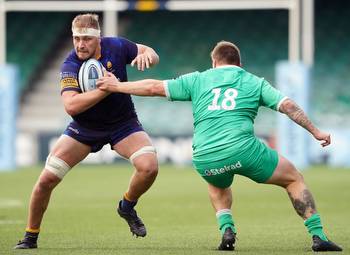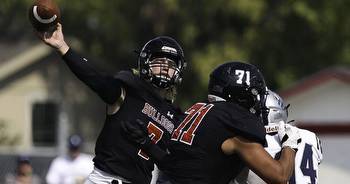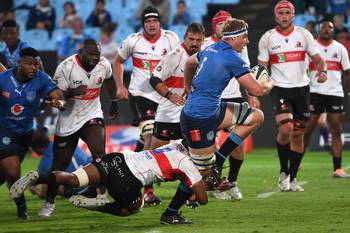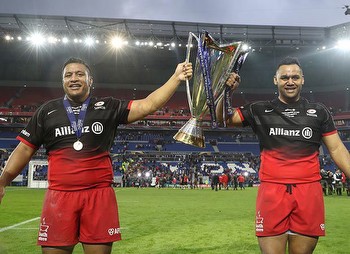The Rugby World Cup fantasy game
This year’s Rugby World Cup comes with a fantasy game designed to push rugby union fandom towards a new frontier.
Since the official fantasy game launched prior to the start of the tournament, there have been over 100,000 sign-ups. Though that is dwarfed by the masses involved in Fantasy Premier League (FPL), other comparisons are more encouraging. At the height of its popularity, it is estimated that ESPN’s Six Nations game engaged between 100,000 and 200,000 unique users per round.
Here’s how it works, and how to beat your mates.
The tournament’s official game gives you a budget of 100 credits to assemble a team of 15 comprising two props, a hooker, two locks, three back-rowers, a scrum-half, a fly-half, two centres and three outside backs. Players have been assigned varying prices.
A designated captain counts for double in any given match and there are three ‘boosters’, including ‘super kicker’ and ‘defensive king’. Transfers are unlimited, presumably to mitigate injuries.
The fantasy game scoring system uses metrics such as tackles, running metres, interceptions, line-out steals, offloads and even line-break assists – essentially passes that send a team-mate into space. Missed tackles, penalties and knock-ons are just three ways to lose points.
Stats Perform are the data providers, and greater detail fuels the single biggest reason to play fantasy in the first place: vindication. What could be better, or make you smugger, than tangible evidence of your superior knowledge when hunches are backed up by performances on the pitch, especially if you feel you have unearthed a relatively obscure or untapped talent?
Whereas the simplicity of FPL scoring suits football and will have contributed to its immense growth, a detailed points system for the Rugby World Cup game should also enhance understanding and awareness. Not only will big names earn recognition for skills that go under the radar but observers will have additional incentive to familiarise themselves with emerging nations and monitor those players.
For anyone wishing to upstage the Telegraph writers – and judging by comments on our recent Top 100 series, that might be an attractive proposition – we have set up a league for the World Cup with the access code E3XYNW6O.
Off-setting the obvious excitement, there is a sadness as the knockouts arrive because we must say goodbye to a cohort of players. As far as fantasy goes, it has been particularly galling to bid farewell to heavy scorers like Ben Tameifuna, Darcy Graham and Nicolas Martins. The game provides a subtle, respectful aeroplane icon to outline who has gone home.
Boosters are replenished for the knockout rounds – I forgot to use one over the quarter-finals, which was dumb – and the salary cap is increased. You are also a greater number of players per team. At the semi-final stage, that limit rises to five.
The best players thrive at the business end of tournaments and, often, they speak about sticking to game plans. I have already wobbled by committing the cardinal error of trying to be too clever. Damian Willemse was my fly-half for the quarter-final and returned just three points... although, if you ask me, he should have had a big bonus for assembling a scrum after taking a mark against France.
... because it’s more satisfying when it comes off. I was doubly happy with the 100-point haul of Cameron Roigard (seven credits) against Namibia in the pool stages, because I was aware of the New Zealand rookie’s prolific form for the Hurricanes in Super Rugby earlier this year. Leicester Fainga’anuku (seven credits, 91 points), bound for Toulon after emerging with the Crusaders, is renowned for roaming off his wing and hunting touches, which proved useful.
Aside from tries (15 points) and assists (9 points), turnovers (4 points), interceptions (5 points), line-out steals (5 points) and line-breaks (7 points) are big winners. Defenders beaten (2 points) can add up too.
An obvious one, but team announcements will come thick and fast. Unlimited transfers mean you really should have 15 players actually playing. Be wary that some, such as England hooker Jamie George (10 credits) and most captains, are more likely to last close to 80 minutes.
Further to the ‘captain’ chip, which doubles the points of a chosen player, there are three further boosters in this game. ‘Triple captain’ does the obvious, ‘defensive king’ doubles points for tackles and turnovers and ‘super kicker’ increases the return for shots at goal. You could use them once each during the pool stages before they regenerated for the knockout rounds. Let them rip, because they are no use if left over.
Burger Odendaal is a flinty South African centre and before I knew what he looked like, I knew he was difficult to tackle. Such is the power of fantasy rugby.
Odendaal was a thrifty midfield option in the Super Rugby Super Coach game, which I played avidly a decade ago. Then with the Bulls, he would return a steady stream of points thanks to his ability to shrug off defenders. I rarely watched the South African franchises, with early-morning broadcasts of games in Australia and New Zealand easier to catch because of the time difference, yet became aware of Odendaal’s hauls. Initially, my only reference point was his avatar on the Super Coach interface; a little light blue shirt. I would remain ignorant of his facial features and stature for some time.
Now 30 years old, Odendaal has joined Northampton Saints for the 2023-24 season and is sure to attract a new band of suitors among Premiership watchers. In the shorter term, the World Cup can show the potential of fantasy games to push rugby union fandom towards a new frontier.
Fantasy games should not be so complex as to obstruct new fans. They can be a gateway, even if statistics are not for everyone. The various fantasy leagues of the NFL have eased newbies into to the sport all around the world without dumbing down nuances or oversimplifying the scoring. Many have pined for a video game to succeed Jonah Lomu Rugby, the cult classic of 1997. As far as engagement, fantasy could be a step in the right direction.
Over the years, different fantasy games have focussed on the Premiership. Fantasy Rugby Draft and The Rugby Magazine built up loyal followings. Dream Team, the brainchild of Ni Butler and Chris McKenna, aims to launch for the 2024-25 season. Before that, ahead of the 2023-24 campaign, Premiership Rugby is understood to be working on a product with SuperBru and Oval Insights. Expect a thorough scoring system and a game that should appease nerds and intrigue casuals. And make sure to select Burger Odendaal.

